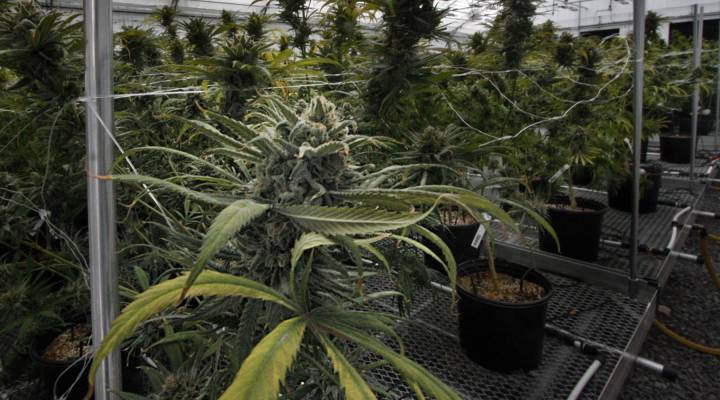
Real estate investors help grow the medical-marijuana business
Real estate investors help grow the medical-marijuana business

With recreational marijuana getting all the attention these days, it’s easy to forget how far the medical marijuana industry has come since California became the first state to legalize medical marijuana in 1996. Today, Arcview Market Research estimates that the legal medical marijuana industry pulls in $4.7 billion in consumer spending.
But as a business, things haven’t gotten any easier for medical marijuana growers. Take PharmaCann, a medical marijuana provider with dispensaries in New York and Illinois. Facing a complicated landscape where bank loans and mortgages are all but impossible, it recently sold its facility in Hamptonburgh, New York to a San Diego-based company, in order to raise money to run its business.
- Many banks still won’t take pot money
- Why aren’t more women in the pot business?
- The link between marijuana and real estate prices
From the outside, the lab looks more like a storage facility than a fancy grow lab. Inside, there’s no tinfoil on the windows or purple grow lights hanging from the ceiling. Between the pressurized rooms, sophisticated lab equipment and bar-coded marijuana cuttings, you’d think you were visiting Pfizer or Johnson & Johnson. PharmaCann grows its plants here, extracts the cannabis oil and send it to its dispensaries the form of things like vape cartridges or tinctures.
All that setup requires heavy investment. There’s the state of the art lab, which PharmaCann says cost $25 million, and several six-figure salaries to lure chemists and scientists from the pharma world. Plus, there’s the price of doing business when your product is legal in some states, but still outlawed by the federal government.
Lab technician Dana Radzicki with a handful of vape cartridges, about to be shipped to PharmaCann’s dispensaries
“Nothing’s easy,” said Jeremy Unruh, PharmaCann’s general counsel and chief compliance officer. “Everything costs more. And everybody has a service to provide. And everybody wants to charge a premium for that service.”
Unruh said just getting a $5,000 line of credit at a Staples or OfficeMax is complicated, or getting the cable company to come out and hook up your data line. Without easy access to capital, companies like PharmaCann often have to resort to other methods of raising money, like draining their own investments and asking friends or family.
Innovative Industrial Properties, the San Diego-based company that bought PharmaCann’s lab, sees this issue as a business opportunity. IIP is what’s called a real estate investment trust, or REIT. It seeks to buy up properties like PharmaCann’s lab and lease them back to the original owners. When IIP bought PharmaCann’s facility and land last December, PharmaCann received $30 million to run its business. IIP received a piece of property that might grow in value.
“It also gives shareholders the opportunity to invest in a cannabis-related business,” said Paul Smithers, president and CEO of IIP.
That’s because REITs, which typically package properties like hotels or shopping malls, often sell shares in the trust to investors. IIP, the first cannabis-related REIT, went public last December, becoming the first cannabis-related company to be traded on the New York Stock Exchange.
A view of a PharmaCann growhouse.
“It hasn’t been very easy for the average lay person to participate in this industry, but this is one way to enter,” said Paul Habibi, continuing lecturer of finance and real estate at UCLA Anderson Graduate School of Management.
As an investment, IIP isn’t without risk — there’s the ongoing legal debate over marijuana and law enforcement. And while IIP plans to buy up more marijuana labs, the PharmaCann lab is IIP’s only property so far.
“There’s been some scientific research into this that actually says if you were to pick out individual stocks, you’d need to get to about 30 random stocks, before you actually diversify away what we call idiosyncratic risk, within each specific stock, or in this case, each individual property,” Habibi said.
Still, he said, if this novelty approach pays off, other unique industries could give the REIT model a chance.
There’s a lot happening in the world. Through it all, Marketplace is here for you.
You rely on Marketplace to break down the world’s events and tell you how it affects you in a fact-based, approachable way. We rely on your financial support to keep making that possible.
Your donation today powers the independent journalism that you rely on. For just $5/month, you can help sustain Marketplace so we can keep reporting on the things that matter to you.












